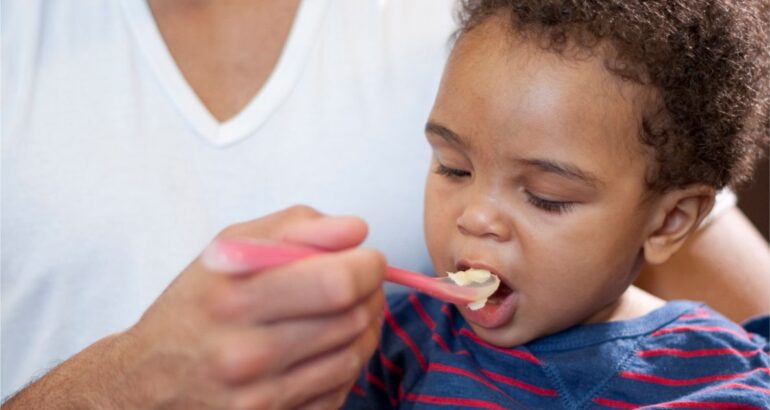
We once stumbled on a disturbing question asked by a parent on Twitter. He wanted to know if Golden Morn was okay for a 7-month baby. It was quite shocking.
@MamaletteNG Hello mothers, please is it good to feed 7 months baby with Golden morn ?if yes which kind of milk can be recommend to supplement it? Tnx
— Olacunnels🇳🇬🇬🇧 (@Cunnels) May 16, 2019
We corrected that notion with a response on Twitter. However, we believe more parents need to know why some cereals aren’t safe for babies.
There are two different types of cereal: those meant for babies and those meant for older children and adults.
What is infant cereal?
Infant cereal is usually a formula made from grains and other supplements processed for infant consumption. It is specially manufactured to meet the nutritional requirements of infants before the introduction of appropriate feeding or before they begin to eat food meant for older children.
What is the difference between infant cereal and other cereal?
Most people erroneously think that all cereals are the same. As a result, they feed their babies with any cereal they find in the market. However, they are quite different.
One of the major differences between infant cereal and others is the process of hydrolysis. For most Infant cereals, hydrolysis is a key process but it is not necessary for other family cereals. Hydrolysis makes it easy for baby foods to be digested because the internal organs of babies are not yet developed enough to digest some food substances.
Babies produce a small amount of salivary amylase — an enzyme that helps digest grains — because of their underdeveloped organs. They produce almost no pancreatic amylase until after their molars are developed. When babies are fed cereals that did not go through hydrolysis, the complicated digestive process they’re incapable of can destroy their intestinal lining. Unhydrolysed cereal can also result in food allergies, loss of weight, vomiting, and irritation in babies.
How to know what cereal is safe for your baby
Infant cereal is usually described by manufacturers as easy to digest on their packaging. They are specially designed to be suitable for babies when breast milk alone can no longer meet their nutritional demands.
Similarly, other food manufacturers now indicate whether the cereal is for infants or older children. And it’s not just cereal, this is done for milk as well. For example, Complan indicates on every pack that it is not to be fed to children below 3 years of age.
This is also why cereal makers like Nestle, the maker of Golden Morn have a warning clearly written on the pack: “GOLDEN MORN is not an infant cereal. Not suitable for children below 3 years of age”.
A lot of mothers, however, do not adhere strictly to this. Most babies have been lucky to go unhurt consuming food that is too advanced for their internal organs. However, some of their counterparts have not been so lucky.
In conclusion, there’s a need to be more observant when it comes to feeding our children. We must be more label aware and always ascertain that a packaged cereal or formula is suitable for infants before feeding it to them. Always read the nutritional information, not just for babies but even for you as well.
Also read: Only Carbs? 7 Protein-rich foods to include in your Nigerian diet
References
Baby Migi: https://babymigo.com/anonymous/question/can-i-give-complan-milk-to-my-one-year-baby
What To Expect: https://www.whattoexpect.com/first-year/baby-feeding/when-can-babies-eat-cereal
Huckleberry Care: https://huckleberrycare.com/blog/when-can-babies-eat-cereal




Educative
Agreed with you. I have been giving my baby Golden morn with milk but later she started having pains in her tummy. I thought the problem was from the milk (lactose ) but l keep on searching till l tried to know if Golden morn is bad for her age range. I was shocked to read this that is not good for a child below 3years. Wow. May God have mercy. I normally take things on check, l don’t know why this happened. Thank you